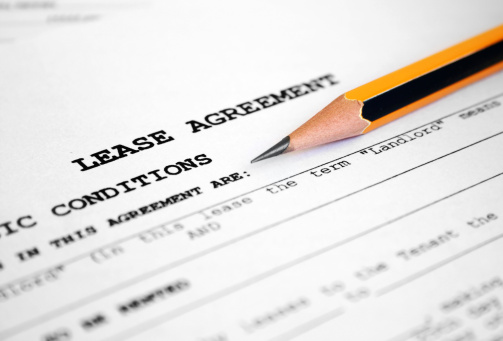 Owners of leasehold properties should avoid so-called informal deals which are negotiated directly with freeholders “like the plague”, a leading expert has warned.
Owners of leasehold properties should avoid so-called informal deals which are negotiated directly with freeholders “like the plague”, a leading expert has warned.
Thousands of people who bought new-build leasehold homes have been left with properties that are virtually unsalable as the result of bad ground rent terms attached to their lease, many of which see ground rents double every 10 years.
This has led numerous leaseholders to conclude that the only option is to buy the freehold of their home to remove the onerous ground rent clauses, but many are confused about how to acquire their freehold and unaware of the dangers and pitfalls involved.
Louie Burns, managing director of leasehold enfranchisement specialists Leasehold Solutions, said an informal deal – where the leaseholder is contacted directly – was the worst decision that a leaseholder could possibly make as they will have no legal protection.
“This is one instance where ‘no deal’ really is better than a bad deal,” said Burns.
Leaseholders have the legal right to buy their freehold under the Leasehold Reform Act (1967). Here there is a legal process to follow, with a statutory valuation method set down by law.
“If the freeholder will not agree to negotiate fairly, home owners have a legal right to force them to and are offered legal protection on the terms of the freehold purchase. To many people this process may seem daunting and uncertain, and understandably people shy away from it,” said Burns.
The Leasehold Reform Act (1967) was designed to offer leaseholders legal protection and to compel the freeholder to negotiate fairly during the purchase of the freehold. However, an ‘informal’ freehold purchase means leaseholders step outside of this protection.
The offer they receive from the freeholder will be a ‘take it or leave it’ deal, and there is no way of changing the terms offered.
“We regularly see freeholders asking for up to 50 times the current ground rent on the property, which can be double or sometimes even triple what the valuation would be using the statutory method. We also see people who have bought their freeholds informally and paid up to £25,000 more than they should have done, simply because they accepted an informal agreement,” said Burns.
In addition, an informal deal often won’t remove some of the costly terms that can be included in the lease, meaning home owners will continue to pay fees to the freeholder for permission to alter their own homes, even after they have purchased the freehold.
“Some of the clauses we have seen retained are costs of £300 per room for permission to change the carpet, thousands of pounds for licences to carry out DIY, £4,500 to build a conservatory, and even £107 to install a blind over a kitchen window.”
Recently, several freeholders have made offers to change a ground rent that doubles every 10 years to one that is linked instead to the rate of inflation (pegged to the Retail Price Index).
“On the surface, this offer may seem like a godsend, but with all things leasehold the devil is in the detail,” cautions Burns.
“The deals we have seen are not good at all, as in most cases the freeholder wants to double the ground rent before they link it to RPI on an ongoing basis, which means most ground rents would rise to around £590 per year linked to RPI for the remainder of the lease. Furthermore, many freeholders are asking for fees of up to £15,000 to transfer doubling ground rents to ones linked to RPI, which is simply outrageous.
“Leaseholders who accept deals of this sort are accepting an onerous ground rent clause for evermore, which might give them serious problems should they try to sell their home. In addition, the same fees for licences and permissions will be included in the terms of the new lease, and if they wish to purchase the freehold at a later date then it will still cost many thousands of pounds, whether they use the informal of statutory route.”
Earlier this month, Nationwide Building Society announced that it will no longer provide mortgages on homes with onerous ground rent clauses. Leasehold Solutions expects other major lenders are likely to announce similar policies over the coming months.
“I fully understand why the informal option can appear to be easier. Freeholders are very good at making informal deals look attractive and hassle-free, largely because they don’t want to lose the valuable income for ground rents and permissions.
“The only sensible option is to use the statutory legal process, which is there to protect leaseholders, and will enable them to buy the freehold, remove onerous ground rents and costs for permissions, and take back control of their property for good.”




